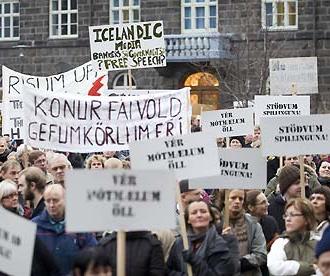VIDEO: No Bailouts in Iceland
Icelandic people refuse to repay Internet bank’s multi-billion debt

People in Iceland have rejected their government’s pledge to repay a debt of more than US$5 billion left by the collapse of Icesave Internet bank. 93 per cent of people voted “no” in a referendum.
Less than two per cent supported the repayment of the debt, which is due to be paid to the UK and Dutch governments, which had compensated the investors who had lost money.
Andrew Gavin Marshall from the Center for Research on Globalization says the public should not have to shoulder the burden of mistakes made by banks.
“The bailout would be for roughly US$5.4 billion, which would go to the Dutch and the British depositors in Icesave, which was the largest online bank that went under,” Marshall says. “And this is basically asking the Icelandic people to pay for the bad debts of their bankers and the bad regulations of their government. And it’s sort of endemic of this corporatist economic undertaking that is going on around the world, where the private debt has become a public obligation. So you privatize profit and you socialize the risk.”
People protest outside the Icelandic Parliament
in Reykjavik on March 6, 2010:
ANdr

